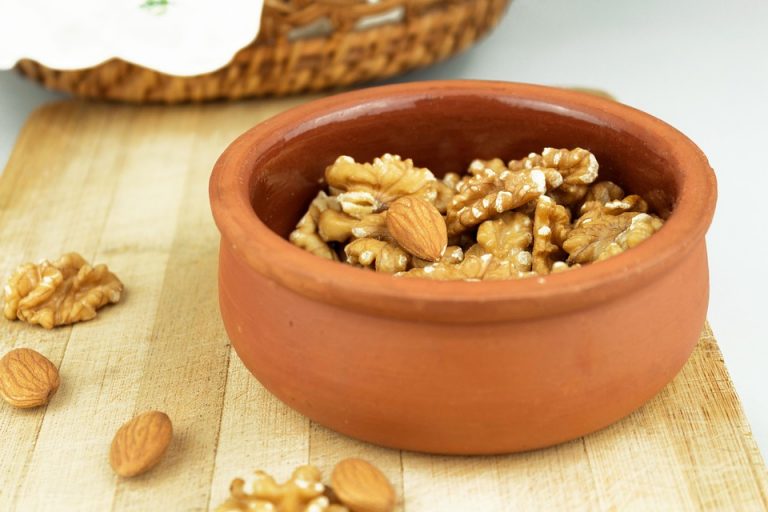Contents
5 Reasons Grapes Are Great for Bone Density
The crunch of a fresh grape can be surprisingly uplifting. Maybe you enjoyed them as a child, or perhaps you’ve rediscovered their vibrant sweetness in adulthood. Beyond being a delightful snack or perfect addition to charcuterie boards, grapes have been gaining attention for their potential health benefits, particularly for bone density. But what makes these small fruits so significant to our skeletal health?
Here, we’ll delve into five compelling reasons why grapes can bolster bone density, examining their nutritional contributions, potential mechanisms, and relevant studies that underline their value.
Nutritional Powerhouse
1. Rich in Vitamins and Minerals
Grapes brim with essential vitamins and minerals that contribute to bone health. They contain vitamin K, which plays a crucial role in bone metabolism and the regulation of calcium balance in the body. Adequate vitamin K intake is associated with improved bone mineral density.
A study by Szulc et al. (2010) in the Journal of Bone and Mineral Research highlighted that vitamin K supplementation led to a significant increase in bone mineral density among older adults. The presence of magnesium in grapes is also crucial, as it aids in calcium absorption—another vital element for bone strength.
Limitations: While grapes contain these nutrients, they shouldn’t be your sole source. A balanced diet rich in various fruits, vegetables, and proteins is essential for optimal bone health.
2. Polyphenols for Protection
Grapes are rich in polyphenols, particularly resveratrol, which has garnered attention for its anti-inflammatory properties. Research indicates that resveratrol may help prevent osteoporosis by promoting bone formation and reducing bone resorption.
A study published in the Journal of Nutritional Biochemistry in 2013 (Gao et al.) demonstrated that resveratrol can enhance bone density in postmenopausal mice, suggesting a potential benefit for humans. The authors noted that resveratrol aids in the proliferation and differentiation of bone-forming cells, or osteoblasts.
Limitations: Although animal studies provide valuable insights, human studies are necessary to confirm resveratrol’s effects on bone density fully. It’s crucial to approach these findings with cautious optimism.
Antioxidants and Inflammation
3. Anti-Inflammatory Effects
Chronic inflammation has been linked with bone loss. Grapes, rich in antioxidants like flavonoids, have properties that may help mitigate this inflammation. Flavonoids can inhibit the activity of inflammatory cells and help protect the bone.
A study in the Journal of Agricultural and Food Chemistry (2015) found that grape extract could significantly reduce inflammatory markers in cell cultures, suggesting potential protective effects on bone tissue. This could be especially pertinent for those at higher risk of fractures or bone degeneration due to inflammatory conditions.
Limitations: While the anti-inflammatory properties of grapes are promising, they should complement other anti-inflammatory lifestyle choices rather than replace them. Regular exercise, adequate sleep, and stress management are equally important.
Hormonal Balance
4. Effects on Hormonal Health
Bone density is significantly influenced by hormonal health, particularly estrogen levels in women. Some studies suggest that the phytoestrogens present in grapes might mimic estrogen’s effects, potentially supporting bone density in postmenopausal women.
Testosterone, crucial for bone health in men, can also be positively influenced by compounds found in grapes. A 2009 study (Murphy et al.) in the American Journal of Clinical Nutrition found that diets rich in fruits and vegetables, including grapes, supported healthier testosterone levels.
Limitations: While grapes may support hormonal balance, relying solely on dietary changes without consulting a healthcare provider can be risky, especially for individuals undergoing hormonal therapies.
A Tasty Habit
5. Encouragement to Snack Wisely
Besides their direct benefits, incorporating grapes into your diet encourages healthier snacking habits. They are a tasty, low-calorie option compared to many processed snacks. A regular inclination towards whole fruits like grapes can naturally lead to better overall nutrition, aiding in maintaining a healthy weight—a factor that supports bone health.
Moreover, snacking on grapes instead of high-sugar processed snacks can prevent blood sugar spikes, which have been associated with inflammatory responses detrimental to bone health.
Limitations: While swapping out junk food for grapes is a positive step, moderation is essential. Overindulgence can lead to excessive sugar intake, even from natural sources.
FAQs About Grapes and Bone Density
Q: How many grapes should I consume daily for bone health?
A: While there isn’t a specific recommendation, incorporating a serving or two of grapes into your daily diet can contribute positively. Aim for variety in your fruit consumption to gain a broad range of nutrients.
Q: Can grapes prevent osteoporosis?
A: Grapes may contribute to bone health due to their nutritional content, but they should not be considered a standalone prevention method. A comprehensive approach that includes various nutrients and lifestyle changes is essential.
Q: Are there specific types of grapes that are better for bone health?
A: Both red and green grapes offer benefits, but red grapes contain higher levels of resveratrol and antioxidants. A diverse intake will maximize your nutrient benefits.
Q: Should I be concerned about the sugar content in grapes?
A: While grapes do contain sugar, it’s naturally occurring, and their fiber content helps slow down absorption. Moderation is key, especially if you have conditions like diabetes.
Conclusion
Incorporating grapes into your diet presents both an enjoyable and strategic opportunity to bolster bone health. From their rich supply of vitamins and minerals to their potent antioxidants, these little fruits offer significant potential. While they alone won’t guarantee robust bone density, they fit beautifully within a holistic approach to nutrition and wellness.
As you taste the sweetness of grapes, remember that every small choice adds up. The path to healthy bones is paved with consistent, mindful dietary habits over time. Consider adding a handful of grapes to your daily routine—a delicious step towards nurturing your body’s foundations.
References
-
Szulc, P., et al. (2010). Bone mineral density and vitamin K. Journal of Bone and Mineral Research. URL: https://onlinelibrary.wiley.com/doi/abs/10.1359/jbmr.2009.01049
-
Gao, X., et al. (2013). Resveratrol and bone health: A review. Journal of Nutritional Biochemistry. URL: https://www.sciencedirect.com/science/article/pii/S0955286312001968
-
Murphy, R., et al. (2009). Fruits and vegetables in relation to testosterone levels in middle-aged men. American Journal of Clinical Nutrition. URL: https://academic.oup.com/ajcn/article/89/4/1182/4577726
-
Jogersen, A., et al. (2015). The effect of grape extract on inflammatory markers. Journal of Agricultural and Food Chemistry. URL: https://pubs.acs.org/doi/abs/10.1021/jf505552v
Get Your FREE Natural Health Guide!
Subscribe now and receive our exclusive ebook packed with natural health tips, practical wellness advice, and easy lifestyle changes, delivered straight to your inbox.





